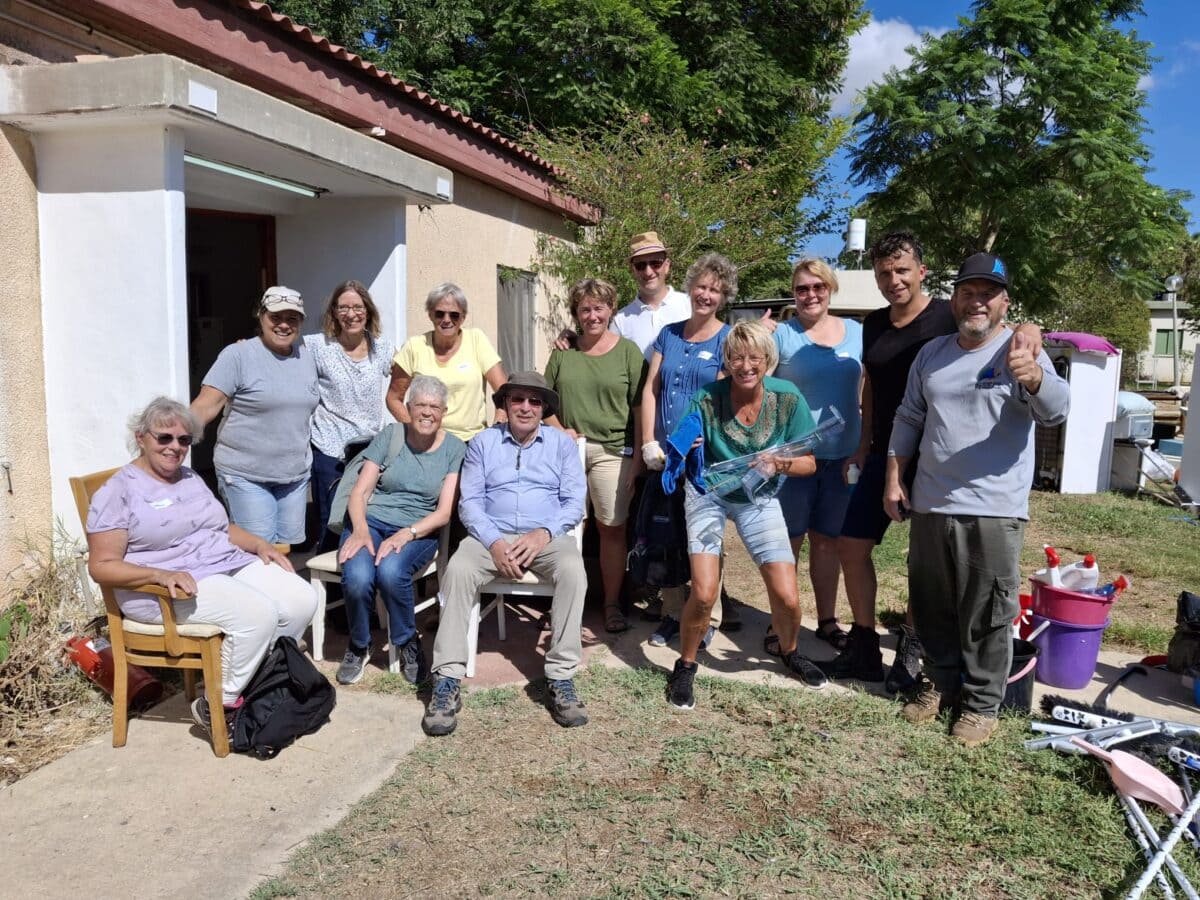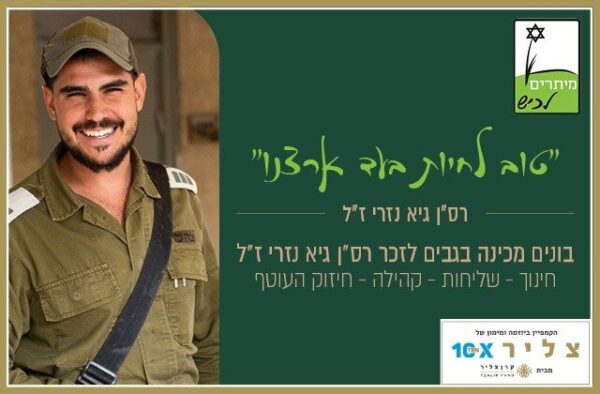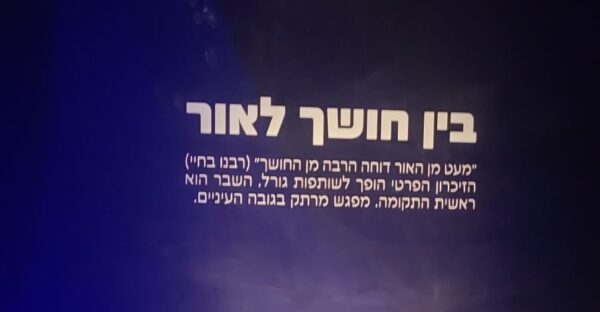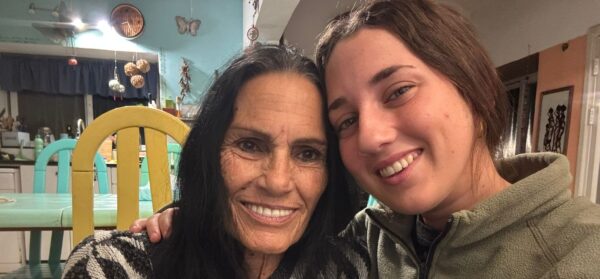Follow a day shaped by care, connection, and community impact – as experienced by Elul’s Shnat Sherut 50 Plus volunteers across Israel’s Gaza Envelope.
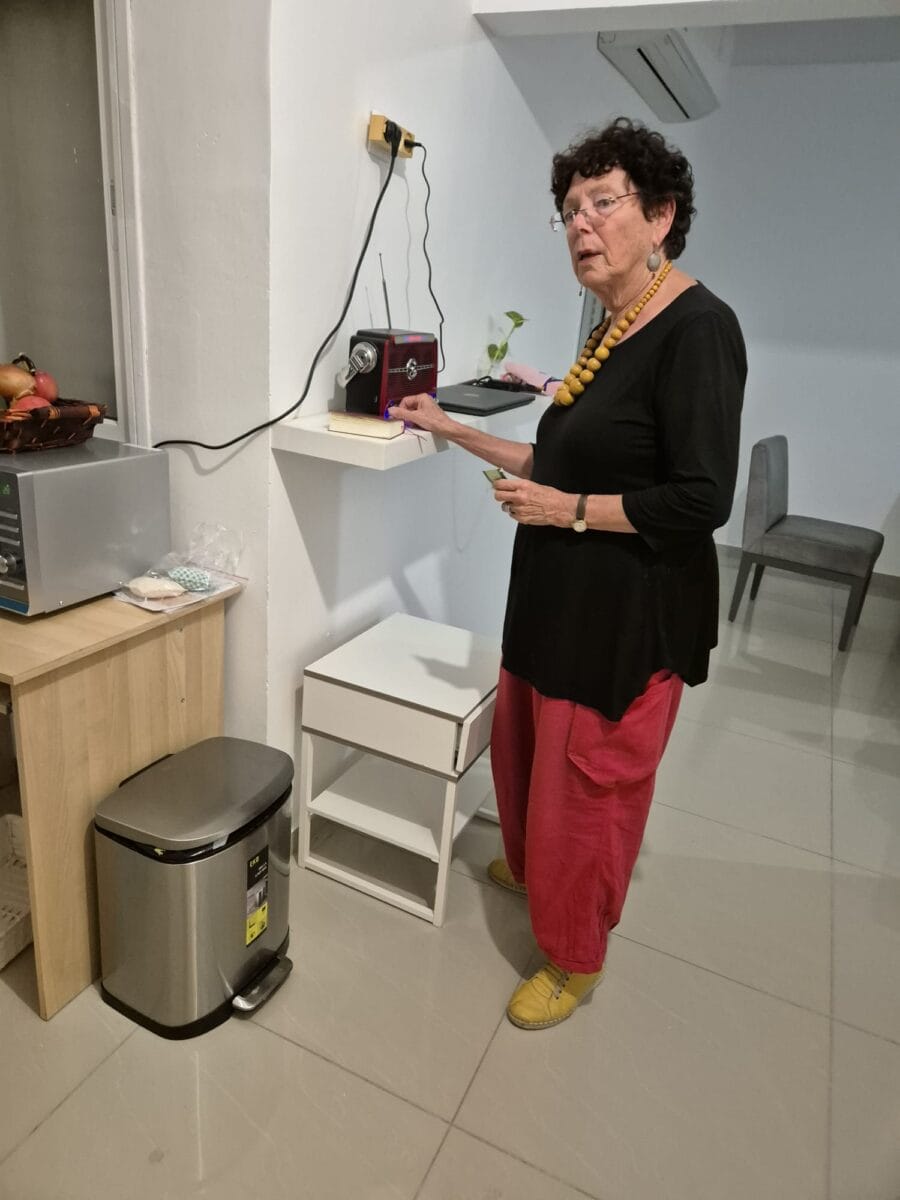
It begins early – before the emails, before the staff arrive. A kettle clicks on in the shared house in Neve Eshkol. In one corner, a volunteer is preparing notes for a parenting group. In another, someone’s looking over an article draft for a local museum. The house is quiet, but the day is about to open up like a field of wildflowers – full of unexpected encounters, slow moments of meaning, and the steady beat of giving.
08:00 – The Clinic, the Classroom, the Coffee
In Tzohar, I.D. starts her morning at the women’s health clinic. Her schedule is full – pregnancy follow-ups, blood tests, genetic screenings. But each one-hour appointment is more than medical. It’s time to talk. Some women are carrying their fifth child. Some are carrying trauma. All are carrying something that needs space to be held.
At the same time, A.V. walks into his math class at Merhavim High School. A student stops him in the hallway – “Because of you, I passed.” They laugh. Then they sit down to quietly go through another equation.
Across town, A.K. is in the Neve Eshkol office, sorting through a grant application no one else had time to complete. She’ll finish it by noon. The result: 200,000 NIS for the community.
11:00 – Movement, Memory, and Legal Advice on the Move
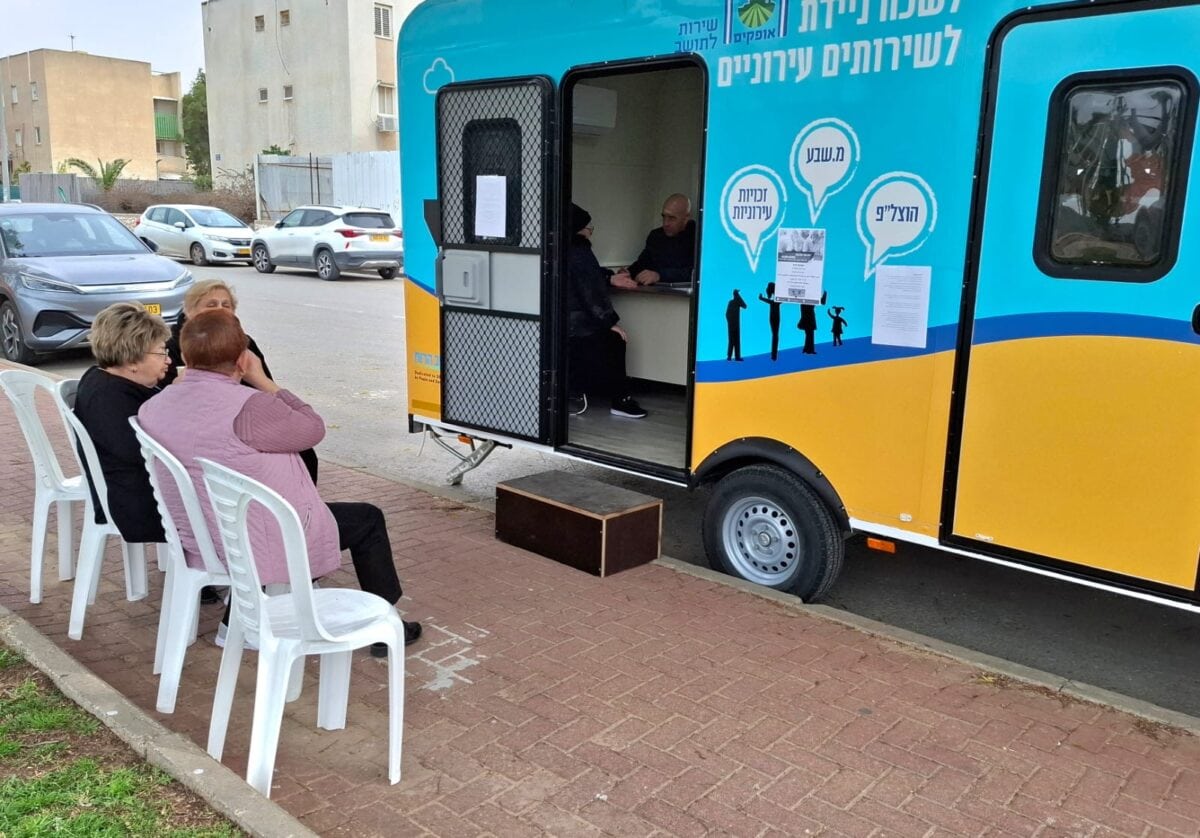
At Bivol, A.F. is leading a toddlers-and-parents play group. She lays out toys, sets up the mats, and greets each family by name. There’s no rush – just rhythm. Movement, bonding, a chance for parents to look up and realize they’re not alone.
Meanwhile, B.S. parks the legal caravan in a quiet Ofakim neighborhood. Residents begin to gather. One wants help with power of attorney. Another with a housing dispute. They come hesitant, and leave with paperwork, answers, and a plan.
13:00 – Lunch, Laughter, and a Walk Through Town
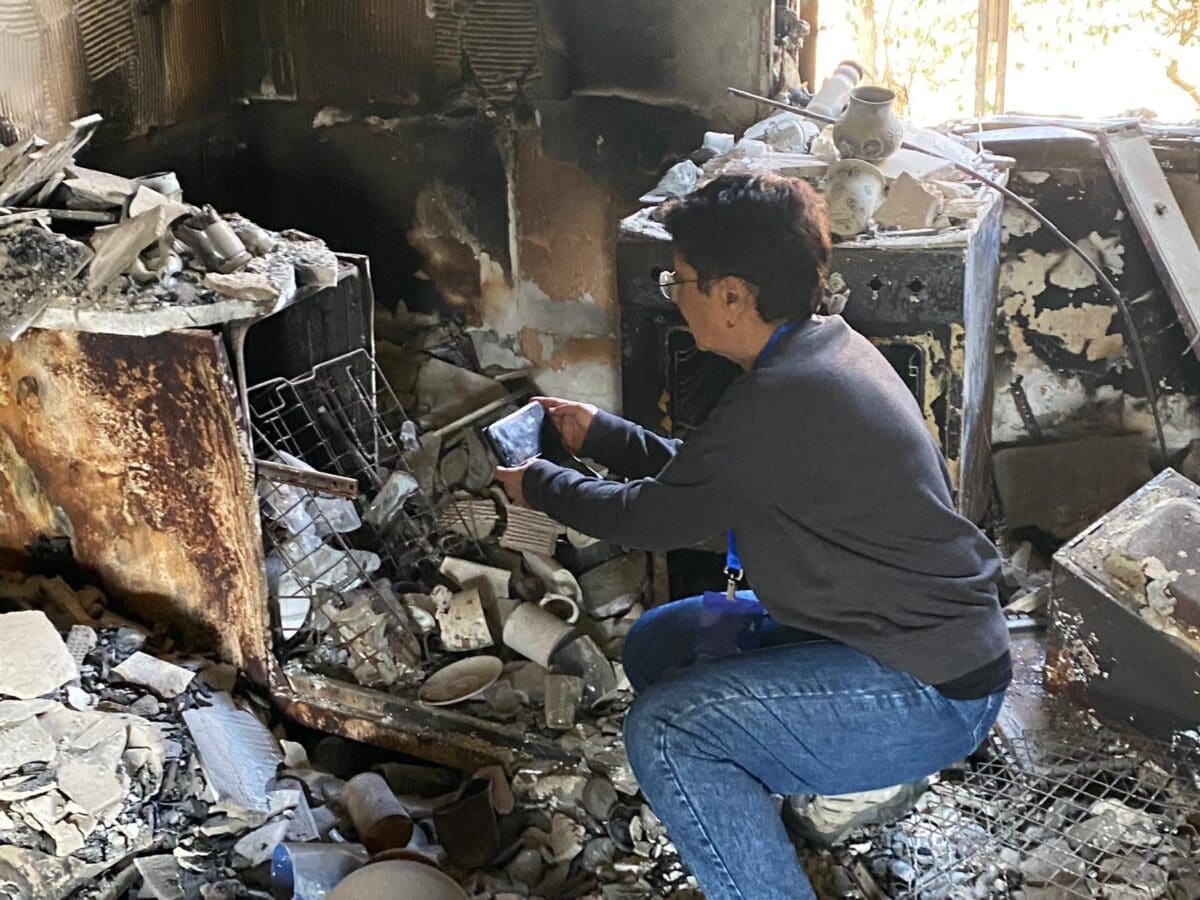
D.K. and A.K. are in Nir Oz, sifting through the “objects of trauma.” They catalogue them carefully. Some families want to talk. Some don’t. But the act of recording matters – because someone is listening.
At a café in Neve Eshkol, S.I. takes a seat across from a man whose partner was murdered on October 7th. She helps with the midday rush, wipes down a table, listens as he talks. Her presence is quiet, steady, expected. That’s the point.
Back in the house, someone makes soup. There’s a joke about who forgot to buy garlic. On Thursdays, V.F. sometimes brings leftovers to the playground she runs in Moshav Yavol. Today, a young girl asks if she can come early next week – she doesn’t want to wait until after school.
16:00 – Grandmothers on Loan, and Stories in the Making
In a modest home, D.L. is helping a young mother rearrange a bedroom. It’s part of an ongoing transformation. The kids are playing. The mother is smiling. She’s begun painting the kitchen on her own. “Come see,” she says, proud. The change is not just aesthetic. It’s emotional. It’s agency.
At a warm house in Tzohar, S.F. is teaching an elderly resident how to use their tablet – again. The lesson is the same as last week, but it’s not about efficiency. It’s about connection.
Nearby, volunteers gather for a playback theatre session. Stories are told. Stories are acted. Emotions shift. A room breathes together.
Evening – Reflection and Reentry
As the sun sets, volunteers return to their homes and friends get together and talk. They plan their week, their weekends where some will commute back to see their families and others will stay behind in the new homes they have for a year to prepare for Shabbat meals, folk dancing, or planning the next community event.
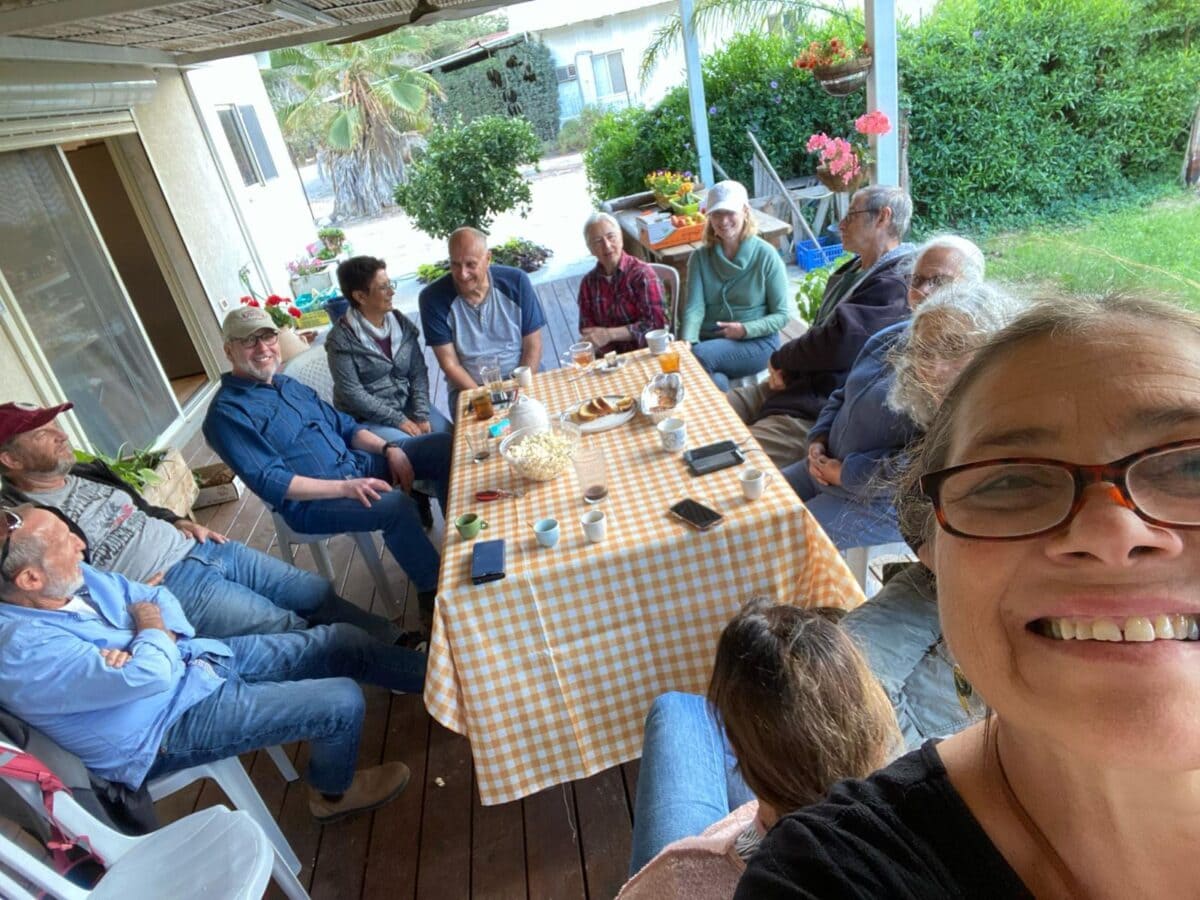
There are conversations about what worked, what didn’t. A few WhatsApp messages buzz through – “Do you have that form?” “Do you know who I can call about the clinic?” “Can someone help with the Independence Day schedule?”
The day ends the way it began: with care, with purpose, with the quiet hum of people trying their best to help others.
